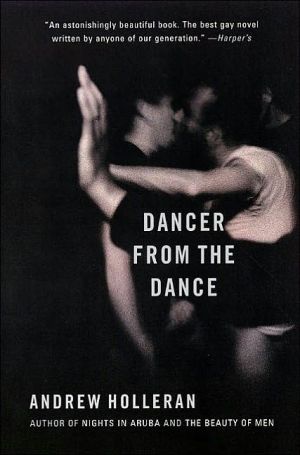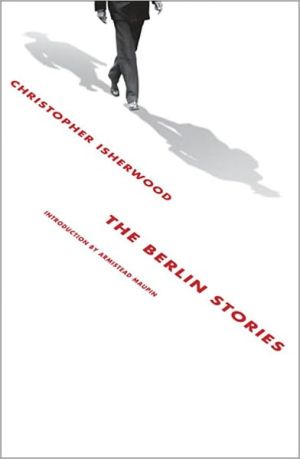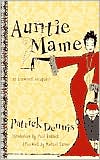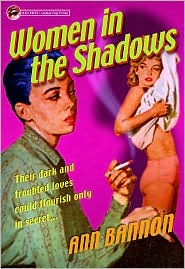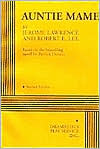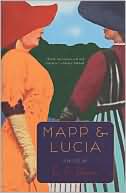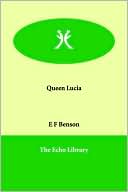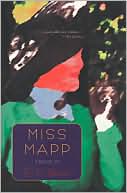Dancer from the Dance
One of the most important works of gay literature, this haunting, brilliant novel is a seriocomic remembrance of things past — and still poignantly present. It depicts the adventures of Malone, a beautiful young man searching for love amid New York's emerging gay scene. From Manhattan's Everard Baths and after-hours discos to Fire Island's deserted parks and lavish orgies, Malone looks high and low for meaningful companionship. The person he finds is Sutherland, a campy quintessential queen —...
Search in google:
One of the most important works of gay literature, this haunting, brilliant novel is a seriocomic remembrance of things past — and still poignantly present. It depicts the adventures of Malone, a beautiful young man searching for love amid New York's emerging gay scene. From Manhattan's Everard Baths and after-hours discos to Fire Island's deserted parks and lavish orgies, Malone looks high and low for meaningful companionship. The person he finds is Sutherland, a campy quintessential queen — and one of the most memorable literary creations of contemporary fiction. Hilarious, witty, and ultimately heartbreaking, Dancer from the Dance is truthful, provocative, outrageous fiction told in a voice as close to laughter as to tears.
Chapter One\ He was just a face I saw in a discotheque one winter, but it was I who ended up going back to Fire Island to pick up his things. Now my father used to say, and I agree: There is nothing so unhappy as going through the clothes of a friend who has died, to see what may be used and what should be given to charity.\ But Malone was hardly even a friend-something much more, and much less, perhaps -- and so it felt odd to be traveling out there yesterday afternoon. It was a fine autumn day, the last week of October, and as the taxi drove from the train station in Sayville to the docks, that village had never looked more attractive. There was an unspoken celebration in the very silence, of the end of that long summer season, when a hundred taxis a day like ours crisscrossed the streets between the train station and the docks, taking the inhabitants of Manhattan across that shallow bay to their revelries on the beach of Fire Island. It was a journey between islands, after all: from Manhattan, to Long Island, to Fire Island, and the last island of the three was nothing but a sandbar, as slim as a parenthesis, enclosing the Atlantic, the very last fringe of soil on which a man might put up his house, and leave behind him all-absolutely all -- of that huge continent to the west. There are Now Yorkers who boast they've never been west of the Hudson, but the exhausted souls who went each weekend of summer to their houses on that long sandbar known among certain crowds as the Dangerous Island (dangerous because you could lose your heart, your reputation, your contact lenses), they put an even more disdainful distance between themselves and America: free, freeat last.\ Well, now the village of Sayville had been left in perfect peace. The strenuous season was behind, and as the taxi drove, more slowly, through the puddles of sunlight and crimson leaves, we passed one tableau after another of small-town life. Kids were playing football in the town park, and another football game swept across the high school field, and boys on bicycles were drawing lazy circles in the supermarket parking lot, and families were out in their backyards raking leaves. It was the sort of scene Malone turned sentimental over. He always passed through Sayville with a lingering regret for its big white houses and friendly front yards with picket fences and climbing roses. He always looked back as he went through, saying this might be that perfect town he was always searching for, where elms and lawns would be combined with the people he loved. But those summer taxis drove inevitably through it, like vans bearing prisoners who are being transferred from one prison to another-from Manhattan to Fire Island-when all we dreamed of, really, in our deepest dreams, was just such a town as this, quiet, green, untroubled by the snobberies and ambition of the larger world; the world we could not quit.\ "Isn't this beautiful?" Malone would exclaim as we drove past the girl doing handstands on the lawn, a young woman walking a Bock of children down a dappled sidewalk. "Why don't we take a house here next summer instead?" But he know we wouldn't, and he knew he wouldn't, for even now the drums were in our blood, we sat forward almost hearing them across the bay, and the van raced on through the streets so that the driver could hustle back for another load of pleasure-seekers, so bent on pleasure they were driving right through Happiness, It seemed, a quieter brand of existence that flourished under these green elms. We kept driving right through all the dappled domesticity, like -prisoners, indeed, being moved from jail to jail imprisoned in our own sophistication. The truth was the town reminded Malone of his days at boarding school in Vermont; the sight of a football arcing across a green wall of woods made him sigh with a passionate regret. He always looked like a student who has just come in off the playing fields, eyes glowing from an afternoon of soccer. He always looked like that, even in the depths of a subway station, on the dingiest street in Manhattan.\ "People are fools to go back after Labor Day," Malone murmured that sunny afternoon. "We should come out after Labor Day," he said; but then he was always trying to refine his pleasures. He loved the shore in autumn when the crowds had vanished, and in the winter he used to go out dancing at five in the morning, and why? Because then the crowd had gone, the discaire was no longer playing for them, but for his friends, and that was the best dancing. And that was why he wanted all his friends to be with him in the country and watch the seasons change in a rustic valley he never found.\ The nasal voice that crackled on the taxi's radio in summer was silent now, as silent as the still air, except for a single burst of static requesting the driver to pick up Mrs. Truscott, who wanted to go shopping, at 353 Elm Street. The driver said he would pick the lady up in five minutes -- news that must have gladdened her heart, for in the summer Mrs. Truscott had to wait for the minions of advertising agencies, the doctors, designers, models, and producers to get to their houses on the beach.\ As we waited at that street corner in the vivid, fiery air of late October, we stared dumbly through the windows at the autumn wed forgotten, living in the city, the autumn blazing out here in the villages along the bay. The van went down one last dappled street and then rounded a bend to present us with a sight that never failed to make our hearts beat faster: the marshy inlets where the trees stopped and the masts of ships rose instead into the air...\ Dancer from the Dance. Copyright © by Andrew Holleran. Reprinted by permission of HarperCollins Publishers, Inc. All rights reserved. Available now wherever books are sold.
